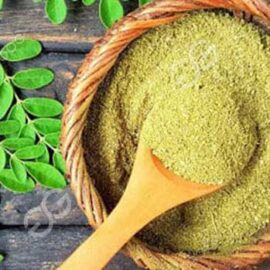In recent years, moringa (often called the “miracle tree” or “drumstick tree”) has gained global attention as a superfood, nutritional supplement, and sustainable crop. With its rapid growth, resilience, and nutrient-rich leaves, seeds, and pods, moringa is not just a health trend—it’s sparking interest among entrepreneurs and farmers. But can growing or selling moringa actually turn into a profitable business? Let’s explore the opportunities, challenges, and key factors that determine its viability.
The Rising Demand for Moringa
Moringa’s popularity stems from its impressive nutritional profile. Its leaves contain more vitamin C than oranges, more calcium than milk, and more iron than spinach, making it a favorite in health-conscious markets. The global moringa products market, valued at over $7 billion in 2022, is projected to grow steadily as demand surges for natural supplements, plant-based proteins, and organic skincare ingredients.
Farmers, wellness brands, and exporters are tapping into this demand. From moringa powder and tea to oils and capsules, the product range is diverse, appealing to industries like food, cosmetics, and pharmaceuticals.
Low Costs, High Yields
One of moringa’s biggest selling points is its low maintenance. The tree thrives in tropical and subtropical climates, requires minimal water, and grows quickly—often reaching harvestable height in just 6–8 months. Once established, a single tree can produce leaves and pods for 15–20 years, offering long-term returns.
For farmers, this translates to reduced input costs compared to crops like corn or soy. Moringa also grows well on marginal land, making it accessible for small-scale growers. A hectare of moringa can yield up to 300 tons of fresh leaves annually, which can be dried and sold as powder for
10
–
10–30 per kilogram, depending on quality and certifications (e.g., organic).
Multiple Revenue Streams
Unlike many crops, nearly every part of the moringa tree can be monetized:
Leaves: Sold fresh, dried, or powdered for teas, supplements, and food additives.
Seeds: Used to produce nutrient-rich oil for cosmetics or as water-purifying agents.
Pods: Consumed as vegetables or processed into supplements.
Bark/roots: Utilized in traditional medicine.
Entrepreneurs can also add value by creating branded products like energy bars, skincare serums, or protein powders, which command higher margins than raw materials.
Challenges to Consider
While the potential is clear, moringa isn’t a guaranteed goldmine. Key challenges include:
Processing Infrastructure: Turning raw leaves into shelf-stable products requires drying, grinding, and packaging equipment, which can be costly for small businesses.
Market Education: Many consumers are still unfamiliar with moringa, so effective marketing is essential.
Regulatory Hurdles: Exporting moringa products may require certifications (e.g., FDA, EU organic) and compliance with international food safety standards.
Competition: As popularity grows, markets in some regions may become saturated.
Steps to Start a Moringa Business
Research Your Market: Identify buyers—local health stores, international exporters, or cosmetic companies.
Start Small: Begin with a pilot plot to test soil suitability and yield before scaling up.
Invest in Processing: Partner with local processors or invest in basic equipment to increase profitability.
Build a Brand: Highlight your product’s quality, sustainability, or organic credentials to stand out.
The Verdict
Moringa has strong profit potential due to rising demand, multiple product opportunities, and low production costs. However, success depends on strategic planning, market research, and investment in processing and branding. For farmers in suitable climates or entrepreneurs willing to navigate the wellness industry, moringa offers a promising—and sustainable—business opportunity.
If you want to start a related business, you can contact us at any time. We are the manufacturer and supplier of Moringa powder making machine. If you want to know more, you can contact us at any time.


